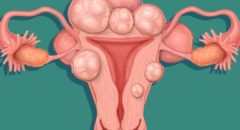
Women are vital to keeping their families healthy, yet many struggle in silence with specific health issues regarding their well-being. Women suffer from conditions that are awkward to talk about, such as autoimmune problems, incontinence, and postpartum depression.
Fibroids are one of these conditions.
Although fibroids are widespread, they are rarely talked about.
Here are seven tips to make your life easier if you have fibroids or think you might have them.
Learn the Cause of Your Fibroids
Age-related increases in the prevalence of fibroids are observed in women, with the 40s and early 50s being the most affected. Typically, fibroids reduce in size after menopause.
All women can get fibroids, but Black women are more likely to get them than other women.
More than 25 percent of Black American women are diagnosed with fibroids between the ages of 21 and 30. Black women are also diagnosed with fibroids at a younger age.
Nobody is aware of the cause of fibroids. According to research, fibroids are regulated by the hormones progesterone and estrogen and have a genetic component.
A family history of fibroids may also make you more susceptible. However, you shouldn’t ignore your symptoms just because no one in your family has fibroids.
There is a correlation between fibroids and women who consume a lot of red meat, and fibroids are more likely to form in obese women.
RELATED: Living with Fibroids: Surgery Isn’t The Only Way To Stop Them
Recognize Fibroid Symptoms
Although many women with fibroids don’t have symptoms, those who do frequently find it challenging to cope with them. Typical signs include:








